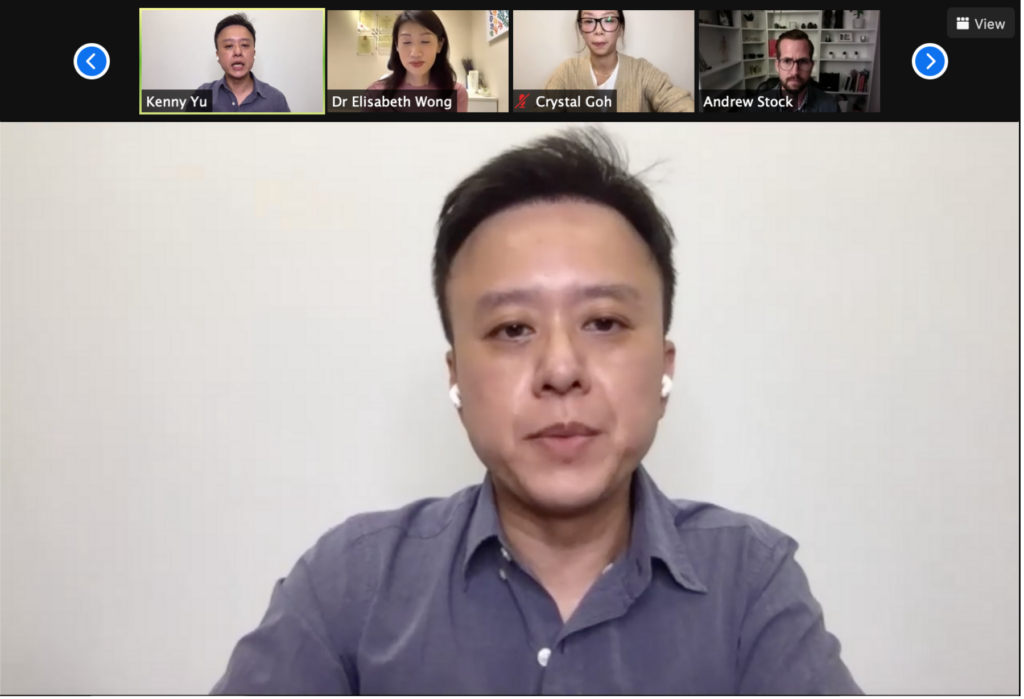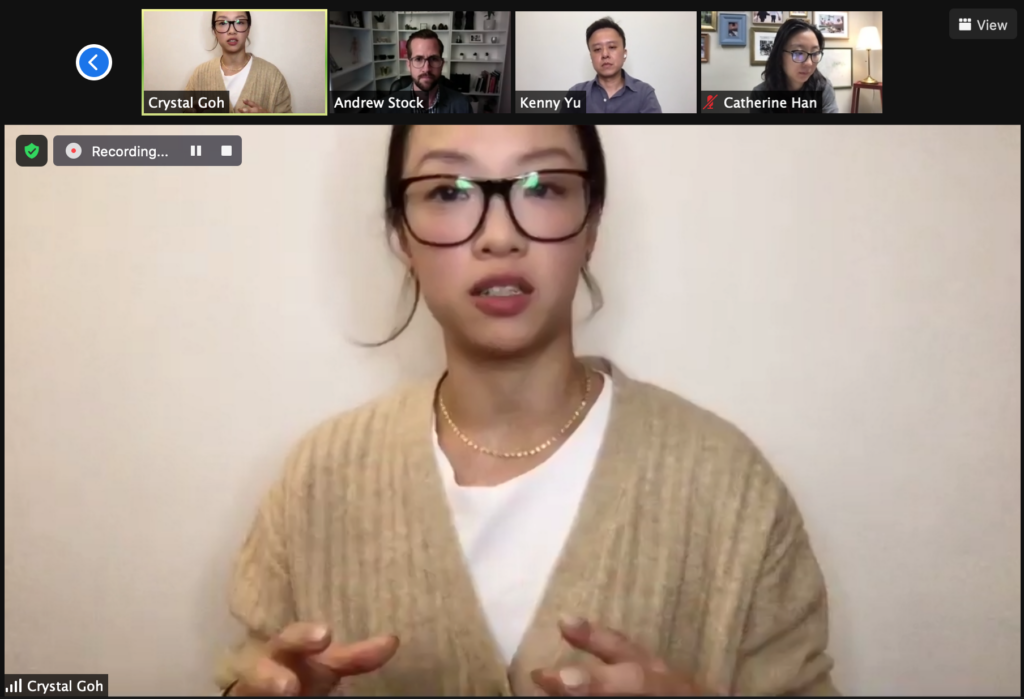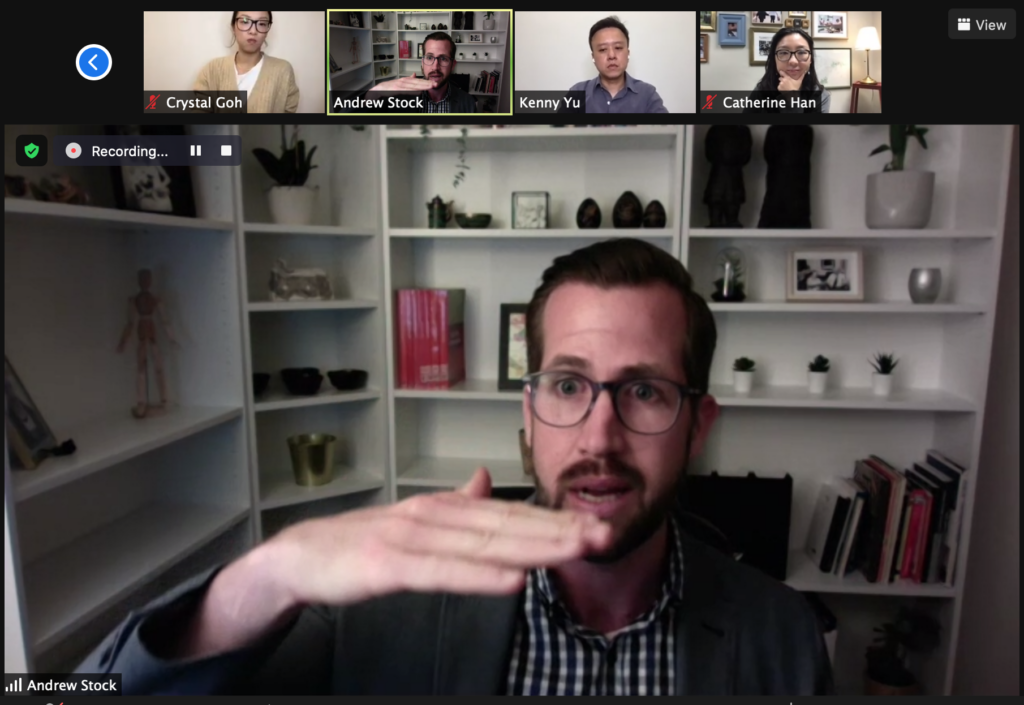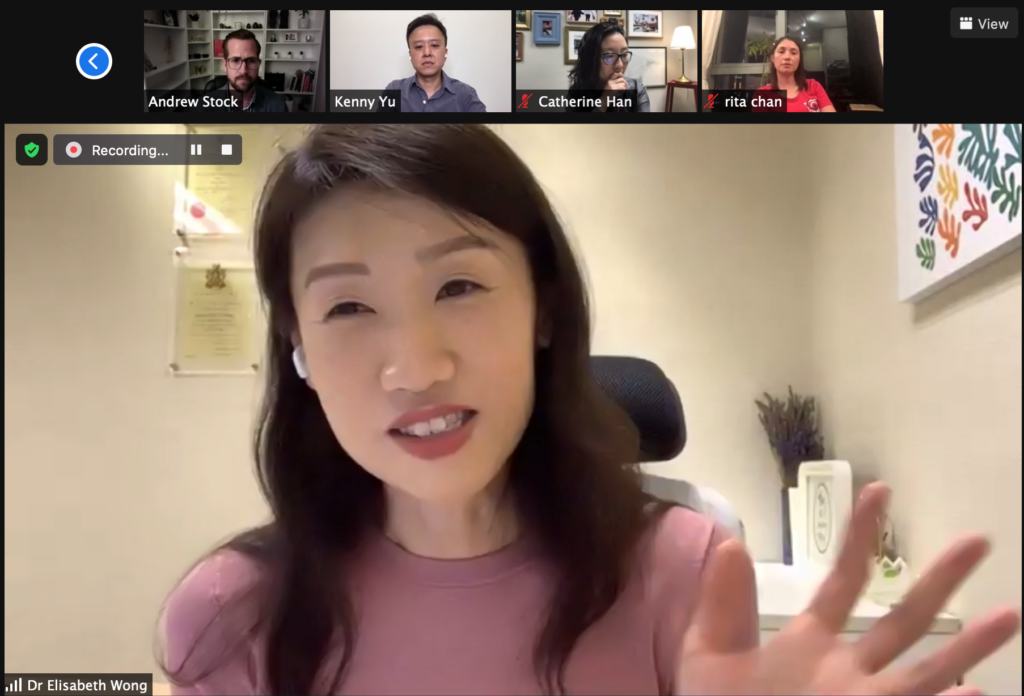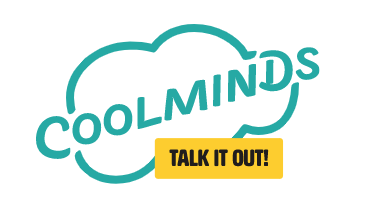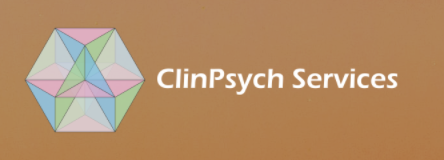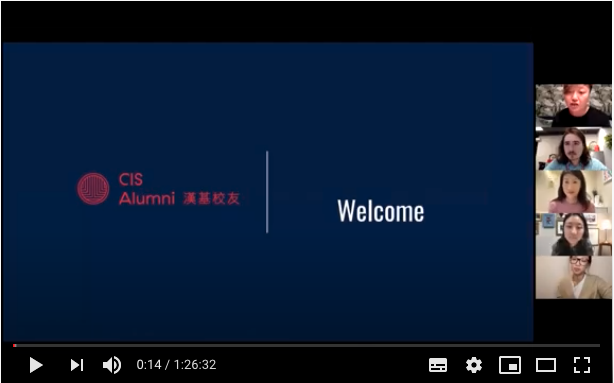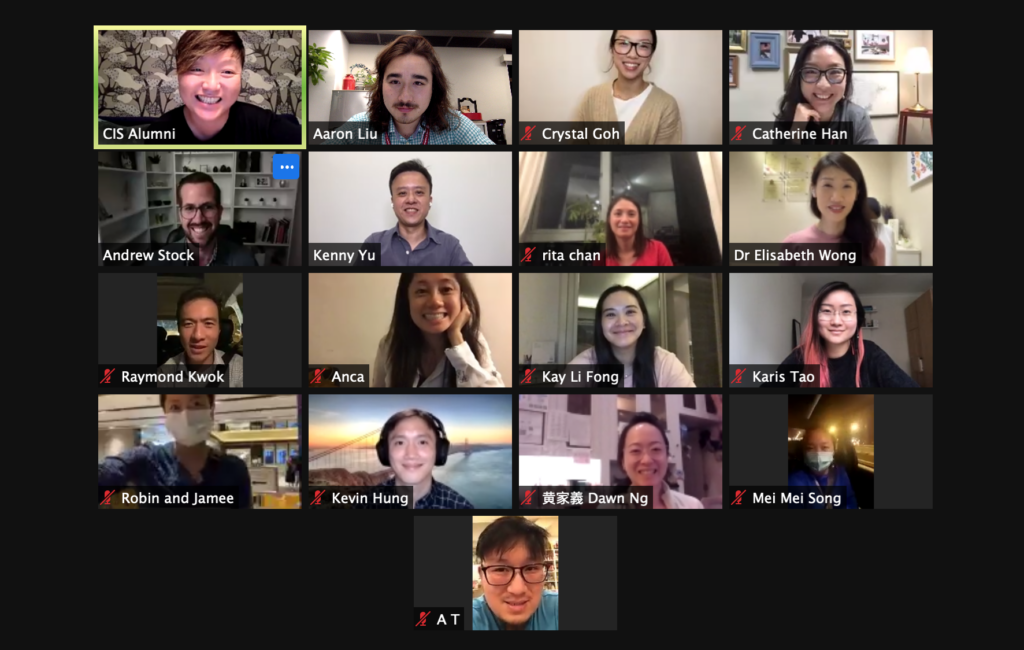
In the second part of our Inspire & Serve Series, a community service initiative focused on raising awareness on social issues in Hong Kong, we hosted a talk on mental health with three great panelists from different realms of the mental health world. The talk was moderated by Kenny Yu ’97. Our panelists were:
Dr. Crystal Goh ’04 – Neuroscientist and Trauma-informed Mindfulness Instructor
Dr. Elisabeth Wong – Advisor to Mind HK, Specialist in Psychiatry, Honorary Clinical Assistant Professor at the Department of Psychiatry CUHK
Dr. Andrew Stock – Clinical Psychologist
The discussion provided an inside look into the state of mental health in Hong Kong. Among the topics of discussion were: (i) the stigma related to mental health, (ii) how we can manage our own mental health, and (iii) the resources available. If you are interested in watching the full video please click here.
Below are the full slate of questions with a preview of the response to each:
Question 1: What are some of the most alarming headlines, or anecdotes, or statistics you have seen recently regarding our city’s mental health?
Andrew: “One of the most alarming things that I’ve read recently is that, when it comes to our mental health, the worst is yet to come. In terms of the ongoing economic, familial, and individual impact of COVID-19…”
Question 2: What would you say to people to convince them that mental health in Hong Kong needs our attention?
Elisabeth: “In the population-wide survey from 2013-2015, the figures in Hong Kong were that one in six to seven adults from age 16 onwards, will or is suffering from some kind of mental disorder. So, if you think about it the numbers are very high, but not as high as the worldwide figure of one in four. So, it’s more likely than not that at least a million amongst us have direct experience with common mental disorders like anxiety and depression.“
Question 3: With the stigma that exists surrounding mental health, how do we differentiate between being a little more stressed or anxious and recognizing a problem that needs help?
Andrew: “We’ve been trying to combat stigma in the field of mental health for decades. In the 1990s we had the decade of the brain and we figured that if we could convince people that mental health issues are synonymous with physical health, then the stigma would go away.
First of all, we didn’t get very far in doing that after spending billions of dollars on it and what we also found from the research is that if you do manage to convince someone that mental health is the same as physical health, they tend to stigmatize others more.”
Question 4: What are some things that we can do to help ourselves and others?
Crystal: “I want to remind people that it is not our duty to solve the macro problem because that’s almost impossible…and starting from where you are right now, sometimes it’s really hard and we want a quick answer, we want a one size fits all; we want the set framework of what we can do. Definitely things like sleep, diet, and exercise are fundamental to our mental health, but also we can talk about cultivating resilience.”
Question 5: How does mindfulness help with improving mental health?
Elisabeth: “Mindfulness that we’re talking about is cultivating the awareness in a non-judgmental manner of the present moment. It’s not just the what that we’re paying attention to, but the attitudes that are cultivated in mindfulness practice. There’s kindness, there’s accepting, there’s being patient and all of these are practiced in all aspects of your life.”
Question 6: Can you expand upon how resilience and grit can be learned?
Andrew: “The word means to respond by moving in a different direction and so when I think about bouncing back in a healthy way, having grit, and being able to hang in there during tough times, I think about my two-year-old son on the trampoline. And the trampoline works because it has some give in it. He’s able to bounce more effectively because it goes down and then back up again...I think healthy resilience is about being aware of the impact you’re absorbing.“
Question 7: What can we do to help our friends and family and communities in need?
Crystal: “We’re in very special times and there are compounding stressors and a very practical thing that you can do is check-in. Check-in with your loved ones and friends because just a simple check-in is sometimes quite powerful.
Question 8: Can mental health be addressed or managed by an individual or do they need to have an expert guide them?
Elisabeth: “There are definitely many proven programs that can be delivered online. Right now, mindfulness stress reduction programs of them are available online both in the US and Oxford Mindfulness Center, so we can all access it wherever we are. Because of COVID-19, a lot of us have had to improvise and teach online, so that’s a new realm altogether…There has always been an online Cognitive Behavioral Therapy program.”
Question 9: Are there certain demographic groups that are more at risk and what resources are available to them?
Elisabeth: “What I’ve found is that it doesn’t matter who you are or what you’re facing, mental health issues affect people quite fairly, it’s just that the context is a bit different. Of course, people of the lowest socioeconomic groups don’t have as many resources whether it’s financial resources, social resources, or even just the knowledge to deal with their stresses. In the last two years, it is mostly the youth group that we are most worried about…”
For more resources recommended by the panelists check out:
Question 10: Do you think Hong Kong gives kids enough play time for balance?
Andrew: “No. We’re learning more and more about what makes people successful in the long run isn’t only their academic capabilities or typical intelligence measures, it’s their emotional intelligence, it’s their resilience, it’s their grit. And that comes from early childhood experiences.”
Question 11: If there’s one thing you want the audience to take away from this panel, what would it be?
Crystal: “To be kind to yourself and the people around you.”
